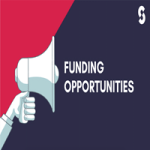
Deadline Date: September 01, 2025
Donor Name: Cancer Research Institute
Grant Size: $10,000 to $100,000
Category: Fellowship
Reference URL:https://www.cancerresearch.org/post
The Cancer Research Institute is seeking applications for its Irvington Postdoctoral Fellowship to promote Racial Diversity supports qualified young scientists from underrepresented minorities at leading universities and research centers around the world who wish to receive training in fundamental immunology and cancer immunology.
Fellows train under the guidance of a world-renowned immunologist, who sponsors the fellow and prepares him or her for a productive and successful career in cancer immunology. The program will provide additional support for mentoring and career advancement to these individuals, as they work to build a more racially diverse and inclusive community of scientists working in immuno-oncology.
Funding Information
- Newly awarded fellowships provide a stipend of $74,000 for the first year, $76,000 for the second year, and $78,000 for the third year.
- An allowance of $5,000 per year is allotted to the host institution for use at the sponsor’s discretion to help pay for the fellow’s research supplies, travel to scientific meetings, health insurance, and/or childcare.
- CRI provides additional support for fellows to attend CRI’s annual International Cancer Immunotherapy Conference (CICON), and to participate in CRI’s soon-to-be-launched Bioinformatics Bootcamp.
- Deductions for administrative overhead are not allowed from either the stipend or the institutional allowance. Payments are made monthly in U.S. currency to the host institution.
Eligibility Criteria
- The CRI Irvington Postdoctoral Fellowship to Promote Racial Diversity is open to candidates who identify as Black or African American, Hispanic or Latino, American Indian or Alaska Native, Native Hawaiian, or other Pacific Islander. CRI also recognizes that underrepresentation can vary from setting to setting; individuals from socioeconomically disadvantaged populations and from other racial or ethnic groups that can be demonstrated convincingly to be underrepresented by the grantee institution are encouraged to apply. Both U.S. and non-U.S. citizens are eligible.
- To be eligible, an applicant must be working at a nonprofit institution in the United States or abroad.
- Applicants must be working in areas directly related to immunology or cancer immunology. An eligible project must fall into the broad field of immunology with relevance to solving the cancer problem.
- Applicants must have a doctoral degree by the date of award activation and must conduct their proposed research under a sponsor who holds a formal appointment as an assistant professor or higher rank at the host institution.
- Applicants with 5 or more years of relevant postdoctoral experience at the time of award activation are not eligible, with the exception of M.D. applicants, who should not include years of residency in this calculation.
- Only in exceptional circumstances will applicants who have already spent 3 or more years in a sponsor’s laboratory by the start date of fellowship be considered for a fellowship award.
- The fellowship can be performed in the United States or abroad but must take place at a non-profit institution. There are no citizenship restrictions.
- Only one fellow per sponsor may apply per application round, and faculty sponsors may not have more than three CRI-supported fellows at any time.
- Resubmissions: Applicants are permitted to resubmit their fellowship application at a subsequent deadline provided that the new application is improved to reflect progress.
Application Requirements
- Brief description of the applicant’s background and research accomplishments. Maximum 500 words.
- Provide a brief description of the knowledge and skillsets you aim to attain during your CRI funded training period. Describe the gaps in your knowledge and skillsets that have been missing from your training to this point and how specifically this training opportunity will help fill those gaps and enhance your understanding of immunology and/or cancer immunology (examples may include opportunities in the mentor/co-mentor lab, resources available at training institution, external training opportunities etc.) Maximum 250 words.
- List of other funding sources to which applications have been or will be submitted, with due dates.
- Applicant’s curriculum vitae and bibliography (NIH biosketch preferred).
- Brief summary of your project, including a description of how the proposed research is relevant to understanding the role of the immune system in cancer and/or the treatment of cancer through immunological means. Not to exceed 500 words.
- Abstract of research in non-technical English explaining the importance of the proposed research and its potential clinical relevance. The abstract will be used for fundraising purposes and submitted to CRI’s lay Board of Trustees. Abstract limited to 250 words.
- Specific aims of the project. Not to exceed 500 words.
- Concise research proposal (background, significance, materials and methods) not to exceed four (4) pages inclusive of tables and figures, exclusive of references.
- Letter from the sponsor introducing the applicant and describing the sponsor’s qualifications to direct the proposed research. The letter must contain assurance that the applicant’s project will be conducted under the direct supervision of the sponsor. Finally, sponsors are asked to indicate whether the application was written by the applicant and also whether any preliminary data included in the proposal was generated by the applicant or by the lab prior to the applicant’s arrival.